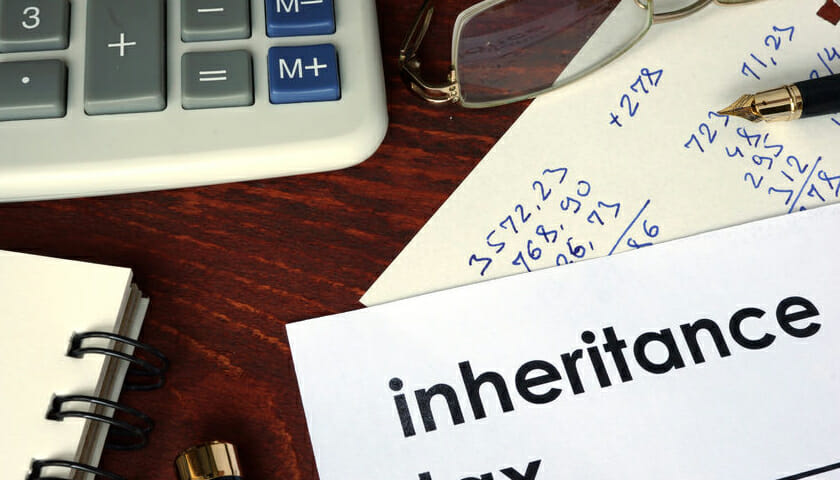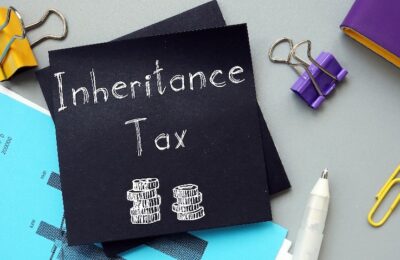Understanding UK Inheritance Tax
Nobody likes to contemplate the day when their Will becomes actionable. The thought of your loved ones experiencing the heartache of loss and managing the finer details of your estate can lead to worry and high levels of stress. After all, growing your estate isn’t simply about growing your own personal wealth; it’s about being able to provide for your family once you’re gone. UK Inheritance Tax Planning is essential to achieve that.
At THP Chartered Accountants, we aim to support you in managing the preparations for the distribution of your assets in a manner that relieves the burden on your loved ones. In particular, we can support you with the necessary Inheritance Tax planning to ensure that those most precious to you are fully informed and aware of the bridges to cross when the time comes.
View our guide to Inheritance Tax planning below for more details on the finer points on calculating the tax due to the Treasury upon your death of the death of a loved one.
How does UK Inheritance tax work?
Traditionally, very few families in the UK have had to pay Inheritance Tax. In fact, the money raised contributes little to the Treasury. This is because UK Inheritance Tax has only applied to those with an estate (i.e. property, savings, and possessions) in excess of £325,000 in value – a threshold figure that will now remain in place until at least April 2026. What’s more, provided you bequeathed your estate to your spouse or civil partner upon your death, Inheritance Tax was not payable.
Of course, nothing involving tax is ever that straightforward and there are a number of variables to take into consideration. For example, should a husband pass away and leave his estate of £325,000 to his wife, she will also take on her husband’s tax-free allowance. This means that her own tax-free allowance actually doubles, giving her up to £650,000 of estate value to pass on to her heirs tax-free when she dies.
In addition, since 2017, an allowance known as the residence nil rate band (RNRB) of up to £175,000 has been introduced, increasing the potential tax-free allowance for a couple to £1 million.
The difficulty, however, arises when an estate exceeds these particular thresholds and when the value of the estate is being passed down generations. What’s more, with the continued increase in property prices throughout the UK, it is certain that the number of families having to pay Inheritance Tax in the years to come is set to grow.
How is it calculated?
Calculating Inheritance Tax is a relatively straightforward process. For those with an estate value of up to £325,000, there is nothing to pay to the Treasury. For any amount exceeding this limit, the standard rate of Inheritance Tax is 40%.
Estate value Amount of taxable estate Tax payable
£300,000 £0 £0
£450,000 £125,000 £50,000
It’s worth remembering that the value of your estate includes property, businesses, savings, possessions, and more. It is essential that you take the time to calculate the value of your estate accurately and take full advantage of the support offered by experienced professionals.
Who pays the Inheritance tax?
Depending on the circumstances of the individual case, Inheritance Tax may be paid in a number of ways but is usually paid out of the funds in the estate, or from money raised from the sale of assets should no cash be available. In many instances, the tax is simply paid out of the deceased’s cash reserves. Alternatively, a life insurance policy may well have been taken out for the sole purpose of covering the IHT bill.
For those leaving a Will, the executor or executors will arrange to pay the tax; for those without a Will, it will be the administrator of the estate. The remains of the estate will be distributed among the heirs only after any IHT has been settled.
Regardless of the manner of payment, it is common practice for the Inheritance Tax to be paid in full within six months of the death of the estate holder. Failure to pay will result in HMRC charging interest. Should the sale of assets such as property take longer than six months, HMRC may allow the executor(s) to pay in annual instalments (plus interest) over a 10-year period.
Are there any exemptions?
There are particular instances where tax exemptions are available. Certain gifts and some property – such as wedding gifts and agricultural property – are exempt from UK Inheritance Tax. However, should the deceased have made any gifts within a seven-year period before their death, the assets disposed of will still be regarded as part of their estate and will be counted for IHT purposes.
The exact value of gifts that may be exempt from Inheritance Tax varies, so consulting with knowledgeable UK Inheritance Tax experts is essential.
On the 6th April 2017 an additional allowance was introduced, known as the residence nil rate band (RNRB), which currently gives those who meet certain criteria like owning a home and having offspring a further £175,000 of nil rate. This means that a married couple who meet the criteria could now pass £1m free from inheritance tax in a legacy to their children.
Is there a way to minimise UK Inheritance tax?
Paying Inheritance Tax on estates that exceed the thresholds is unavoidable, but there are means to reduce just how much you will have to pay. The methods used to achieve tax savings are often complicated but will enable you to at least limit the amount of tax that will be taken upon your death.
As already identified, leaving your estate to your spouse or civil partner means no Inheritance Tax need be incurred at all. Furthermore, you may also choose to pay your money into a pension instead of a savings account, regularly give away up to £3,000 per year in gifts, or place assets into a trust for your heirs. What’s more, if at least 10% of your estate is to be left to charity, the rate of Inheritance Tax payable drops to 36%.
Professional Inheritance Tax planners will be able to advise you on the best ways to limit the amount of Inheritance Tax you will have to pay on your estate. Always seek expert advice to ensure that your estate is managed in the best manner possible and enjoy the peace of mind knowing that your loved ones will be taken care of once you’re gone.
For more advice on Inheritance Tax Planning
To find out more about Inheritance Tax and to discuss the options available, the experienced Chartered Accountants at THP will be able to provide you with the very best advice. With offices in Sutton, Chelmsford, Saffron Walden and Wanstead, we are on hand across the South East to provide the guidance and support you need. Simply get in touch today and we’ll be delighted to answer any questions you may have.
About Ian Henman
London lad Ian joined THP in October 2016 to set up and manage THP’s new legal services department.
Starting at the tender age of 19 Ian spent almost 30 years building his career at Natwest/RBS becoming a business client account manager to many local businesses.
Ian was looking for a new challenge and as THP was searching for someone to gain accreditations and spearhead the legal services department, there was a clear synergy.












